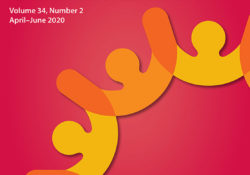tandfonline.com – Relationship Between Screen Time and Chinese Children’s Cognitive and Social Development
tandfonline.com har udgivet en rapport under søgningen “Teacher Education Mathematics”: ABSTRACT ABSTRACT Research on the screen time of young children and its relationship to their cognitive and social development is controversial. Based on a stratified, random sample of 579 five-year-old children in Guangdong, China, this study explores the relationship between the screen time of Chinese children and their cognitive and social development. Specifically, we assessed children’s receptive vocabulary, math skills, executive functioning, science knowledge, and social skills in relationship to their active and passive screen times. Results indicate that the passive screen time of Chinese preschool children was negatively associated with their mathematics achievement, science performance, executive functioning, and social skills. Active screen time was positively associated with their receptive language skills and science knowledge. Additionally, the screen time of… Continue Reading

